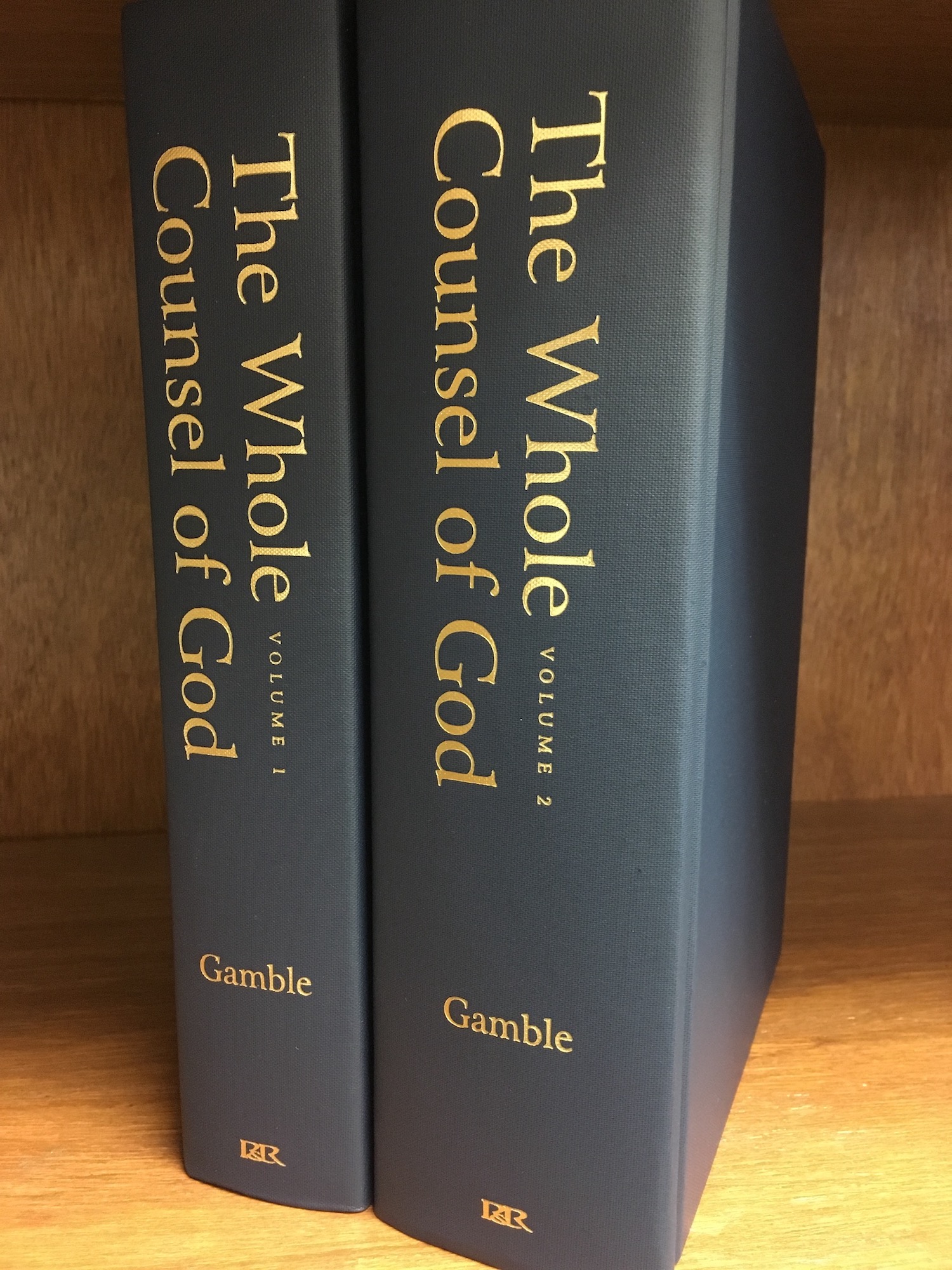This week’s author interview is with Richard Gamble. He is the author of The Whole Counsel of God, Volume 1: God’s Mighty Acts in the Old Testament and The Whole Counsel of God, Volume 2: The Full Revelation of God.
Westminster Bookstore is selling the two volume set for 50% off: HERE.
- Question #1—Tell us a little bit about yourself: where you’re from, family, job, personal interests, unique hobbies, what you do in your spare time, etc.
I come from Pittsburgh, PA. After college and Seminary in western PA my wife and I travelled to Switzerland where she studied music and I worked on my PhD in Church History and Historical Theology. From there I began teaching at Westminster Seminary in Philadelphia then taught at Calvin Seminary in Grand Rapids, then Reformed Theological Seminary in Orlando. In 2005 we moved back to Pittsburgh where I have been teaching Systematic Theology. We have been married for over 40 years, have five grown daughters and four grandchildren.
- Question #2 — When did you first want to write a book?
I have been writing since I was a teenager. While at Seminary I knew that I wanted to earn a doctorate and write a dissertation. My dissertation on Augustine’s Trinity teaching became my first book.
- Question #3 — Which writers inspire you?
British authors, in general, inspire me. They have a way with words that oftentimes transcend American writers.
- Question #4 — Have you always enjoyed writing?
College or seminary professors have got to enjoy writing lectures or they would need to find another field of work. But writing is truly a lot of work. While I enjoy doing research and tracking down smaller theological details, editing for publication does not come easily for me.
- Question #5 — What inspired you to write these books?
The background for The Whole Counsel of God volumes goes back to the 1980’s. The seminary where I was teaching was embroiled in controversy that involved the relationship between exegesis, historical theology, and systematic theology. It was out of that defining time that I saw a need to work on a systematic theology that was deeply informed by biblical theology.



Comments